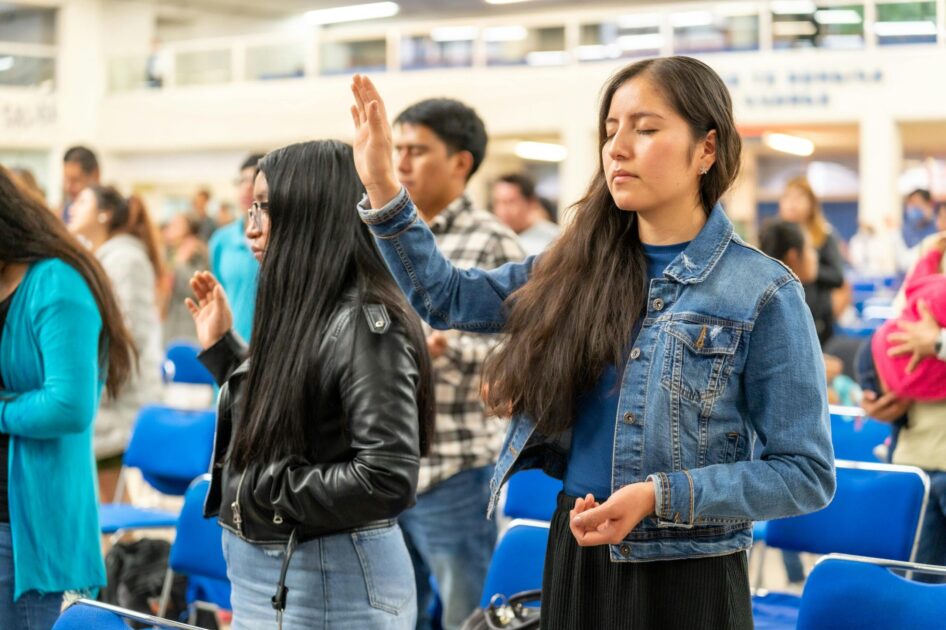
Celebrating the Week of Prayer for Christian Unity
The Week of Prayer for Christian Unity is a significant initiative within the Christian community, designed to foster unity and understanding among diverse Christian denominations. This annual event provides an opportunity for Christians from various traditions to come together, reflect on their shared faith, and pray for greater harmony.
Historical Background
The origins of the Week of Prayer for Christian Unity can be traced back to the desire to address the divisions within Christianity. Historically, the Christian faith has been characterized by numerous denominations, each with distinct traditions and interpretations. These differences often led to misunderstandings and conflicts, prompting leaders to seek ways to promote unity. The initiative was established to create a space for dialogue, mutual respect, and collaboration among diverse Christian groups.
Purpose and Significance
The primary purpose of the Week of Prayer is to challenge Christians to reflect on the importance of unity in their faith. It serves as a reminder that, despite theological and cultural differences, all Christians share a common belief in Jesus Christ. By participating in joint prayer services and interdenominational meetings, Christians are encouraged to bridge divides and work towards a more unified church.
Global Observance
The Week of Prayer is observed globally, with various countries adapting the initiative to fit their cultural and traditional contexts. While there are common themes and objectives, the specific rituals and customs may vary. This adaptability allows the initiative to resonate with diverse communities worldwide, emphasizing the universal call for unity and understanding.
Leadership and Participation

Religious leaders play a pivotal role in organizing and promoting the Week of Prayer. They are instrumental in encouraging their congregations to participate actively. Leaders often emphasize the importance of prayer and dialogue in overcoming differences and fostering mutual understanding. Their guidance helps ensure that the message of unity is effectively communicated and lived out in the daily lives of individuals.
Activities and Celebrations
During the Week of Prayer, a variety of activities are organized to encourage unity and reflection. These may include joint worship services, interdenominational discussions, and community outreach programs. The focus is not only on spiritual practices but also on fostering mutual understanding and respect among participants. Many churches and Christian organizations prepare special liturgies, reflections, and educational materials that highlight the theme of unity.
Challenges and Outcomes
While the Week of Prayer for Christian Unity is a noble initiative, challenges remain. Deep-seated theological differences and historical conflicts continue to create tensions among some Christian groups. However, the initiative encourages a collective effort to address these challenges through open dialogue and constructive discussions. The ideal outcome is not a quick resolution of all differences but a sustained commitment to understanding, respect, and peaceful coexistence among Christian denominations.
Individual and Collective Contribution
Beyond attending services and events, individuals are encouraged to actively participate in fostering unity. This includes practicing humility, openness to understanding different perspectives, and a commitment to living out the values of love and respect. The initiative invites Christians to reflect on their own mindset and practices, encouraging a deeper commitment to unity in their personal lives.
Discussing the Broader Impact
The Week of Prayer for Christian Unity serves as a catalyst for sustained efforts towards unity and cooperation. It challenges participants to carry the spirit of dialogue and mutual respect beyond the week itself, influencing ongoing efforts for Christian unity. This initiative reminds Christians of their shared calling to live out the love and teachings of Christ in their relationships and interactions with others.
The Role of Dialogue in Unity
Dialogue is a crucial component of the Week of Prayer for Christian Unity. It provides a platform for Christians from different denominations to share their beliefs, experiences, and challenges. Through open and respectful dialogue, misunderstandings can be addressed, and mutual respect can be fostered. This practice helps to build bridges between different Christian groups, promoting a sense of community and shared purpose.
Combining Prayer with Action
The Week of Prayer emphasizes that unity is not just a spiritual ideal but also a practical reality that requires action. Christians are encouraged to translate their prayers into tangible efforts to promote unity and understanding in their local communities and beyond. This may involve supporting interdenominational projects, participating in community service initiatives, and being advocates for peace and reconciliation.
Addressing Current Challenges in Christian Unity
In a world that is increasingly divided along religious lines, the challenge of achieving Christian unity remains significant. The Week of Prayer serves as a timely reminder of the importance of addressing these challenges with grace, patience, and a commitment to understanding. By focusing on shared values and common goals, Christians can work together to overcome differences and build a more united church.
The Importance of Reflection and Repentance
Reflection and repentance are integral to the Week of Prayer for Christian Unity. Christians are encouraged to examine their own attitudes and behaviors, acknowledging any roles they may have played in fostering division. This process of self-reflection and repentance is a vital step towards achieving genuine unity, as it promotes humility, forgiveness, and a willingness to change.
The Role of Young People in Promoting Unity
Young people have a crucial role to play in the Week of Prayer for Christian Unity. Their energy, creativity, and fresh perspectives can bring new life to efforts towards unity. Encouraging young Christians to engage in prayer, dialogue, and community service can help to ensure that the vision of a unified church continues to grow and thrive for future generations.
Strengthening Inter-church Collaboration
Collaboration between different churches and Christian organizations is essential for achieving unity. The Week of Prayer provides an opportunity for these groups to work together on common projects and initiatives. By pooling their resources and expertise, Christians can make a greater impact in addressing the challenges facing the church today and promoting unity in the wider community.
Emphasizing the Universal Call to Unity
The Week of Prayer for Christian Unity is not limited to specific regions or denominations. It is a universal call to all Christians to work towards greater unity, regardless of their cultural or theological backgrounds. By embracing this universal call, Christians can move beyond their differences and work together to build a more harmonious and compassionate church.
Conclusion

In conclusion, the Week of Prayer for Christian Unity is a vital initiative that addresses the divisions within Christianity. Through prayer, dialogue, and mutual understanding, it aims to foster greater unity among diverse Christian groups. By participating in this initiative, individuals and communities can contribute to a more harmonious and compassionate Christian presence in the world. The Week of Prayer serves as a reminder of the transformative power of unity in living out the faith and fulfilling the call to love one another as Christ loved us. It is through such efforts that the vision of a truly united church can become a reality, bringing hope and healing to humanity.
